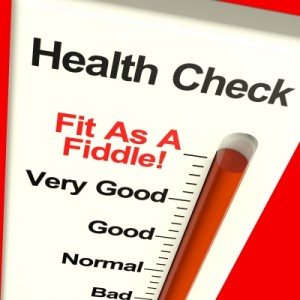Managing chronic pain can feel like an uphill battle- if you suffer from chronic headaches, fibromyalgia, arthritis, or all of the above, then you’re probably doing all you can to prevent flare-ups, fight constant fatigue, and relieve achy joints, stomach cramps, and sore muscles. Just so that you don’t forget, check out this handy list of important coping mechanisms for chronic pain management- how many of these do you use in your day?
#1: Get high on exercise!
While it is possible to overdo it with physical exertion, especially with fibromyalgia, there’s one thing you can’t get too much of, and that’s endorphins- nature’s own painkillers. You don’t have to lift 2-ton barbells or run a mad dash to the finish line to benefit, either. Just 20-30 minutes of walking, swimming, or low-impact aerobics is enough to get some of those brain-made feel-good chemicals.
10 Fibromyalgia-Friendly Exercises that Boost Energy- You can do it!
#2: Breathe in, breathe out!
What do yoga, tai chi, progressive relaxation, anger management, and biofeedback all have in common? They all focus on your breathing! Your lungs are more than just necessary organs to keep you alive; with practice, you can learn how to use cleansing, controlled breaths (also called pranayama) to relax your whole body, relieve pain, and boost energy.
Why More Fibromyalgia Patients are Taking Tai Chi
#3: Quit smoking and alcohol!
 The last thing you need if you suffer from chronic pain is more health problems. This might seem like a no-brainer, but weaning yourself off addictive chemicals isn’t easy, and requires a lot of motivation. So here goes: alcohol and cigarettes lead to increased pain symptoms, fatigue, and numerous diseases, including lung disease, and heart disease.
The last thing you need if you suffer from chronic pain is more health problems. This might seem like a no-brainer, but weaning yourself off addictive chemicals isn’t easy, and requires a lot of motivation. So here goes: alcohol and cigarettes lead to increased pain symptoms, fatigue, and numerous diseases, including lung disease, and heart disease.
#4: Eat your pain away!
Eating healthy isn’t just about maintaining your weight or staving off hunger- by choosing foods that your body needs, you are also helping to prevent chronic pain symptoms like stomachaches, headaches, and diabetic pain, in addition to preventing heart disease, obesity, and gastrointestinal problems. Eat low-fat, whole ingredients like grains, fresh vegetables, and lean meats, versus processed snacks or fast food that contain zero nutrients.
#5: Log your pain!
Every day, keep track of your pain symptoms in a “pain journal” that you can share with your doctor- it may help you find important clues to possible pain triggers. Take note of things you ate, activities, pain medications, and your pain scale.
15 Chronic Pain Myths- Debunked!
#6: Keep your mind occupied!
One of the worst things you can do if you suffer from chronic pain is…suffer constantly. Studies prove that people who dwell on their pain symptoms and make it the focus of their life are least likely to find relief. Find some activity that you enjoy- one that fits in with your daily schedule and doesn’t wear you out- and do it! It can be a crossword puzzle, a hobby, or chatting with a friend…any activity that distracts you from your chronic pain will help improve your quality of life and general sense of wellbeing.
10 Celebrities with Chronic Fatigue Syndrome
#7: Educate yourself about your pain meds!
A staggering number of prescription pain medications can be harmful or fatal. Unfortunately, many doctors are negligent in informing their patients beforehand about the possible side effects of using opioid painkillers or even NSAIDs for long-term pain management. Be up front- ask your doctor about all your current prescriptions, and find out about any alternative medications that produce the same pain relief without causing side effects.
15 Chronic Pain Causes and 15 Treatments (Vitamin B12 is one)
#8: Avoid vitamin deficiency!
Surprisingly, vitamin deficiency correlates strongly with many of today’s chronic pain illnesses.
- Vitamin B12 deficiency has been linked with numerous pain symptoms and disorders, including fibromyalgia, Crohn’s disease, chronic fatigue syndrome (CFS), diabetic neuropathy, pernicious anemia neuropathy, migraine, and celiac disease. For proper diagnosis, ask your doctor for a blood screening for vitamin B12 deficiency.
- Other B vitamins besides vitamin B12– such as vitamin B2, vitamin B6, and folic acid are beneficial for the muscles and joints.
- A large number of migraine patients are deficient in magnesium.
- Coenzyme Q10, a chemical produced by your body, is also beneficial for maintaining a healthy response to inflammation.
Please tell us…
Do you have any chronic pain management tips to add?
Do you use vitamin B12 supplements daily?
Do you have any questions or suggestions? Please leave your comments below.
Share with your friends!
If you found this article helpful, then please share with your friends, family, and coworkers by email, Facebook, or Google+.
Read more about chronic pain
8 Ailments Linked with Gastritis, including B12 Deficiency
Chronic Pain and Acute Pain- What’s the Difference, anyways?
B Vitamins prevent Cardiovascular Disease- B6, B12 and Folate
Images:
Stuart Miles, federico stevanin, africa, scottchan




